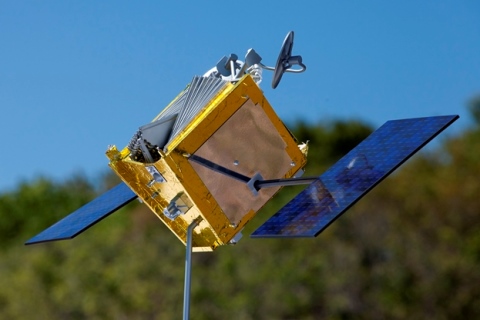Eutelsat OneWeb has announced a multi-year agreement with Q-KON, a leading satellite solutions and services provider. The deal will allow for expansion of Low Earth Orbit (LEO) satellite services across Sub-Saharan Africa, with a primary focus on the southern region.
RELATED: OneWeb and TinSky complete first West African LEO satellite gateway
Strengthening Connectivity with Twoobii Smart Satellite Services
Q-KON initially integrated Eutelsat OneWeb’s LEO satellite connectivity into its Twoobii Smart Satellite Services in 2023. Building on this foundation, Q-KON began utilizing OneWeb connectivity earlier this year to power digital banking operations. The satellite-enabled solutions support critical operational and customer-facing processes. These include intranet services, SD-WANs, branch management, data backhaul, ATM services, and Wi-Fi for staff and customers.
Expanding Capacity to Serve Underserved Regions
Under the new agreement, Eutelsat OneWeb will provide additional network capacity to Q-KON, enabling it to scale its Twoobii-LEO services and extend coverage to more underserved businesses and communities in southern Africa.
Driving Digital Transformation Across Sub-Saharan Africa
Dr. Dawie de Wet, CEO of Q-KON Group, highlighted the transformative potential of the partnership. “This agreement opens up more product flexibility and service differentiation for faster, more reliable connectivity that will empower businesses and support digital transformation across Sub-Saharan Africa,” he said.
The expanded services will enhance the delivery of critical cloud-based applications, remote healthcare, e-learning, fintech solutions, and enterprise connectivity. These innovations are set to benefit both urban centers and remote rural populations, bridging the digital divide and fostering economic growth.
Empowering Businesses and Communities
With this strengthened partnership, Eutelsat OneWeb and Q-KON are poised to accelerate digital inclusion and empower businesses in Sub-Saharan Africa. Their collaboration ensures that even the most remote communities can access high-speed, reliable internet, advancing regional digital transformation and connectivity.

































